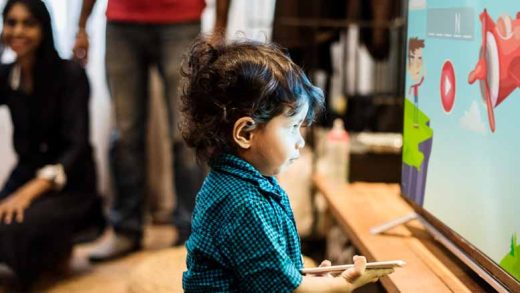For all children, festivals are a time of magic, wonder and awe. Young children in particular find these celebrations fascinating, and often ask the question, “why do we celebrate festivals?”. As parents and educators, we spend a lot of time and effort helping children understand that the importance of festivals extends far beyond the joy and celebration they bring into our lives.
So what do festivals teach us? While each festival holds a particular significance – whether religious, cultural, geographic or national in nature – have you considered that festivals also play a key role in child development, growth and learning? In this blog, we will discover how festivals can serve as incredible learning opportunities that help kids develop essential life skills while they’re having fun.
The Importance of Festivals in Learning Key Life Skills.
Celebrations create natural environments where children absorb values through experience rather than instruction. While festivals primarily provide children with hands-on opportunities to understand their cultural heritage, they also help them develop social intelligence as they interact with extended family and community members, and cultivate empathy through participation in cultural or religious traditions of giving and sharing. By participating in festival preparations, children learn about cooperation, responsibility, creativity, and patience – all while enjoying themselves.
- Celebrating Diversity: Festivals as a Path to Cultural Awareness
- Shaping Children’s Social Skills: Festivals as Social Classrooms
- Planning and Organisation: Festivals as means to Build a Strong Work Ethic
- Festivals as a Canvas for Creativity:
Children who participate in different religious and cultural festivals naturally develop broader cultural awareness. For example, when celebrating the Harvest Festival, children may learn that it is called by many names across different regions – Makar Sankranti, Pongal, Lohri and Bihu – and is celebrated in different ways. This is an important lesson that teaches them that festivals go beyond personal beliefs and traditions – into a space of shared joy and respect for others’ traditions.
Festivals are essentially community celebrations which offer children numerous opportunities to develop their social skills. Participating in formal celebrations helps them understand proper social etiquette, such as showing respect to elders and behaving appropriately in communal gatherings.
What do festivals teach us about planning? Quite a lot, actually! Children who help with festival preparations learn the importance of planning, time management and attention to detail. They also develop resource management skills by learning how to work within a set budget, and how to make the most of available materials and resources.
The importance of festivals in developing children’s creativity cannot be overstated. Activities like making rangolis during Diwali or painting Easter eggs for Easter not only strengthen their connection to their heritage, but also help children develop fine motor skills and explore different artistic mediums and techniques.
Maximising Learning Experiences through of Festivals:
Parents can take several approaches to help their children learn valuable life skills and values through celebrating different festivals. Involving children in the planning of celebrations, sharing mythological stories and their meaning, encouraging their curiosity, and exposing them to diverse cultural celebrations are just a few ways through which parents can enhance their child’s learning.
- Involve Children in Planning:
- Share Stories and Meanings:
- Encourage Questions:
- Connect with Other Cultures:
Encouraging children to join in the planning for various celebrations at home will help them develop a sense of ownership while also sharpening their planning skills. Including them in conversations about decor, menu planning and entertainment ideas is a great place to start.
India has a diverse set of festivals which provide the perfect backdrop for children to learn about abstract concepts and values. For example, Shravan, Lent and Ramadan are holy months during which devotees observe a period of fasting. Parents can pick any 5 festivals of India that share common themes to help their children understand their deeper significance.
When children ask, “Why do we celebrate festivals?”, it presents a valuable learning opportunity. Their natural curiosity serves as a powerful learning tool, helping them develop a deeper understanding of traditions while fostering respect for diverse cultures.
Expose children to various cultural celebrations. If possible, participate in different community festivals to broaden their cultural understanding.
The importance of festivals in helping children learn, grow and develop is often overlooked in the excitement that celebrations usually bring. The best learning occurs when children are fully engaged and unaware that they are learning—festivals offer this opportunity, blending fun with meaningful life lessons. Through these experiences, festivals contribute to shaping well-rounded individuals, fostering harmony, and instilling lifelong values.
At Kangaroo Kids, we believe that as educators, our role is to introduce and guide children through diverse experiences that help them learn and build perspectives. We integrate these into our curriculum design and activities, which lead to effective learning outcomes for our children. To enrol your child with us, visit our website or contact our admissions office today.









